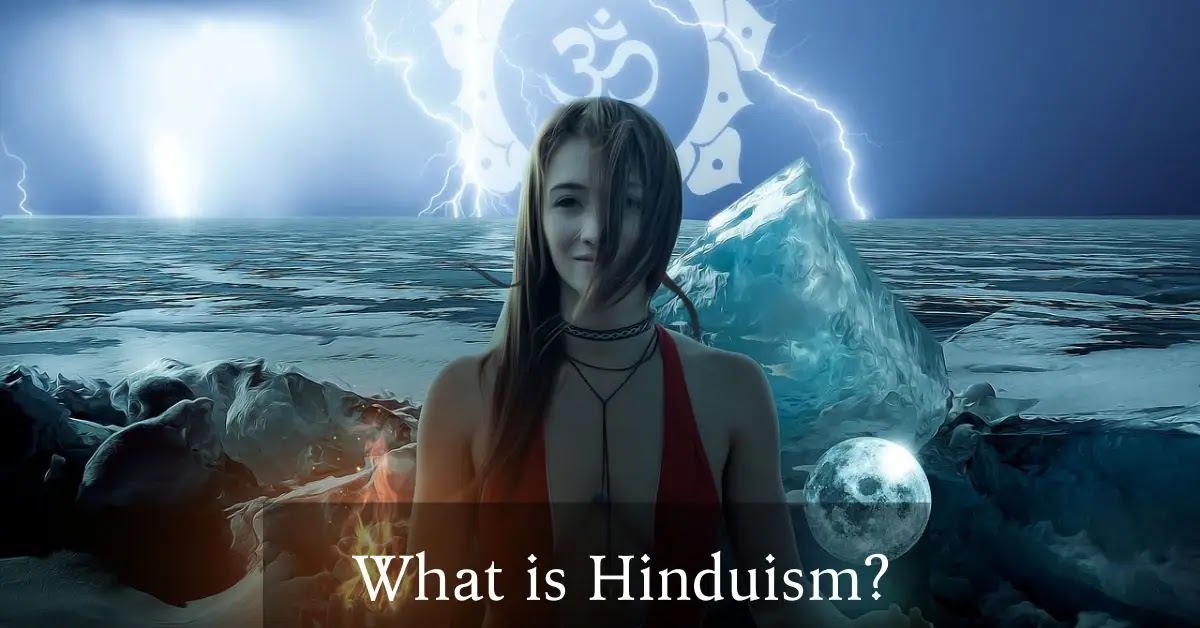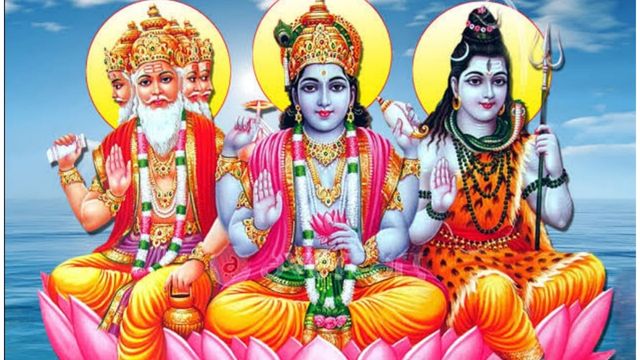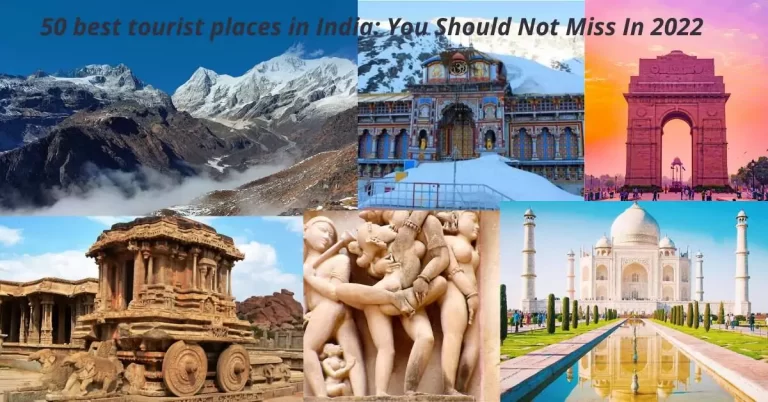What is Hinduism? – Hinduism Explained
Hinduism is a very ancient religion in India, which has its own different beliefs and customs. Many gods and goddesses are worshiped in Hinduism, which is considered a symbol of happiness, peace and prosperity. In such a situation, even though you know a lot about Hinduism, but when it comes to Hinduism, people often get confused.
In such a situation, if you are always confused about the word Hinduism, then in this article we will tell you in detail about all the aspects related to Hinduism and Hindutva.

What is Hinduism?
The word Hinduism is used for people who believe in Hindu ie Sanatan Dharma and live their life according to it, who are believers or atheists, but they are related to Hindu religion. India has the largest number of people who follow Hinduism, whereas Hindus constitute 15 to 16% of the world’s population..
The word Hindu or Hindutva has its origin in ancient times when the people of Arabia reached near the Indus river after a long journey. In such a situation, they gave the name Hindu to the people living on this side of the Indus river, while the people living across the river were called Al-Hindu. At that time people of all religions living across the Indus river were addressed as Hindus.
But with the passage of time, the word Hindu became the identity of Sanatan Dharma and then this word started being used only for the people who believe in Sanatan Dharma. At the same time, between 1816 and 1817, the word Hindu got another name. When Raja Rammohun Roy first used the word Hindutva.
During this time, the British rule was going on in India, who started calling people following Sanatan Dharma as Hindutva. People following religions like Muslims, Sikhs and Christians living in India were kept away from this Hindutva word.
In this way the people who followed Sanatan Dharma in India became Hindus and they were being identified with the word Hindutva all over the world. Because of which this word is currently used only for Hindus.
.
Hinduism Beliefs
Hinduism may seem easy to see, but it is equally difficult to understand it. There are many such beliefs in Hinduism, which you have hardly heard about. There are many Vedas Hinduism. which were written by sages in ancient times. These Veda Puranas give guidance to the people of Hindu or Sanatan Dharma to live life, while it also contains complete information about the events from birth to death and after that.
All the beliefs of hinduism religion are based on Purushartha, which has all the information related to human life. Purushartha is mainly divided into 4 parts, which include Dharma, Artha, Karma and Moksha. Human life rests on these four beliefs, which people who believe in Sanatan Dharma have to follow.
1. Dharma
According to hinduism, a person should first follow his Dharma (religion). Here religion is meant to complete the tasks necessary for one’s life on time. If a person completes all the tasks in his life on time, then he gets the unique power to think and understand any thing, with the help of which he can easily choose between right and wrong.
A person who follows Dharma should never work against the laws of nature, because even man himself cannot escape from the harm caused by it. According to religion, every person should do such work in his life, which can benefit the other person and reduce the difficulties of his life.
According to religion, it is wrong to harass a person or establish his authority over his things. Due to which a person has to face difficulties in attaining salvation after death. According to Purusharth, a person who walks on the path of Dharma while completing his regular tasks. He moves one step forward every day towards attaining salvation.
2. Artha
The 2nd part of Artha hinduism, which includes all the material things that a person uses to live his everyday life. These material goods include all those things including bread, cloth and house which are necessary to lead a healthy life.
According to Purushartha, following Dharma, one should acquire material things to spend his life and this action is considered to be the meaning of life. In such a situation, if a person moves ahead without achieving the meaning of his life, then he never feels peace and satisfaction.
Such persons are full of laziness and greed, due to which there is always a feeling of jealousy and irritation for others in their mind. Hence the person who follows his Dharma attains Artha and fulfills the material needs of himself and his family. His attainment of salvation, the path becomes even easier.
3. Karma
The 3rd part of karma hinduism, which is very important to lead a human life. When a person works to fulfill his material needs, then his desires and all kinds of desires are definitely fulfilled.
On the other hand, the person who wants to live on the earnings of others sitting on luck, he does not get anything in life. This is the reason that in order to lead a better life, it is necessary for a person to work so that he does not have to depend on any other person or on the money of his own parents for fulfilling his needs.
4. Moksha
The 4th and last part of Moksha Hinduism which is also the last stage of human life. To attain Moksha (salvation), a person regularly follows Dharma, Artha and Karma in his life so that after death he gets a chance to get closer to God.
The soul of the person who has attained salvation remains immortal even after death and keeps on roaming in this universe, due to which there is neither the happiness of birth nor the fear of death. In such a situation, the person who spends his life according to the effort, he never has to face any kind of difficulty.
.
Hindu Gods

People who believe in Hindu Dharma believe in God, but they are not bound by which God they have to worship. In Sanatan Dharma, Lord Vishnu, Lord Brahma and Lord Shiva are considered to be the best who had incarnated on earth in different eras.
Lord Brahma: It is believed that Lord Brahma had created the earth and it was he who gave life on earth to all living beings and plants including this man and woman.
Lord Vishnu: Lord Vishnu took different avatars on earth. Sometimes he was born in Ayodhya as Shri Ram and sometimes played in Gokul as Shri Krishna.
Lord Shiva: Shiva hindu god is related to birth and death on earth. The Ganges coming out of their hair is the main source of water in India, which quenches the thirst of crores of Indians.
In such a situation, people who believe in Hinduism are free to worship any of Brahma, Vishnu and Shiva. Not only this, they can also worship different incarnations of these three deities. Some people worship all Hindu gods and goddesses, while some Hindus. They worship any one deity and spend their whole life in worshiping him.
This simply means that in Hinduism, everyone has the freedom to worship his God or his form, including the method of worshiping idols and worshiping without idols. If a person has faith in God, but he cannot see him in any form, then in that case that person can remember his God even without worshiping idols.
In Sanatan Dharma, remembering your God is considered the only way to be near Him, in which no God is superior or better than anyone. In Hinduism, every god has its own belief, in which people believe and worship them.
.
Hindu Scriptures
There are Vedas Puranas in hindu scriptures, which have been written at different times. These Vedas are divided into 2 parts, known as Shruti and Smriti. The texts under Shruti are written by the sages themselves, while the texts under Smriti are also recited by another person and the Vedas or texts are written according to that person’s memory.
The most recognized Vedas in Hinduism are known as Rigveda, Yajurveda, Samaveda and Atharvaveda. Apart from this, the major texts of Hinduism include Upanishads, Shiva Purana, Ramayana, Mahabharata and Bhagavad Gita.
All these Vedas, Puranas and texts were originally written in Sanskrit language, which was later translated into other languages including Hindi and English. In the same way, hindu texts were written in to treat Ayurveda and various diseases, which were read and used to treat the victim in ancient times.
.
Varna system in Hinduism
People who believe in Hindu Dharma have to be a part of the Varna system to lead their lives. In which the human being is mainly divided into 4 different categories i.e. parts.
1. Brahmin- According to this varna system, the highest position in the society is held by Brahmins i.e. Pandits, who do the work of educating the society and making rules and regulations for the society. Not only this, Brahmins also teach the king to rule on the strength of his education and intelligence. Also, how to deal with the disaster coming on the state. This is the reason that since ancient times, in brahman hinduism is considered to be the most revered after God.
2. Kshatriya- Kshatriya comes in second place in this Varna system, who perform tasks like ruling and fighting wars. Kshatriyas mainly come from the royal family who work for the betterment of the state on the advice of Brahmin.
3. Vaishya- In this Varna system Vaishya comes in third place, whose job is to do farming, gardening and business. These people meet the food needs of other sections of the society.
4. Shudra- Shudras come in fourth place in the Varna system. Their job is to do small jobs in the society, which include hair cleaners, blacksmiths and people who make clothes from animal skins.
.
Hindu religious festivals
Just as people who follow Sanatan Dharma are not restricted to believe in any one God, in the same way people of Hinduism are not restricted to celebrate any one or more festivals. Many types of festivals are celebrated mainly in Hinduism, including Holi, Diwali, Dussehra, Navratri, Shivratri, Rakshabandhan, which are associated with the gods and goddesses.
However, the desire to celebrate or not to celebrate these festivals completely depends on the people of Hindu religion, due to which they can celebrate the festival or leave it on their own. In Hindu religion, the tradition of not celebrating the festival is followed on the death of someone in the family, because festivals are a symbol of happiness and in such a situation, if a person dies, then the people of that person’s family have to mourn for 13 days.
Similarly, in many places, there is a variation in behavior for the people who follow Hindu Dharma, which depends on the beliefs of the people living in that place or area. For example, in Gokul and Braj, the festival of Holi starts 15 days before, whereas in other states of the country, Holi is a festival of only one day. Not only this, some festivals are also celebrated in Hinduism which are celebrated only in a particular area or state.
While some festivals like to be celebrated with pomp by all those who believe in Sanatan Dharma, Holi and Diwali are considered to be the most celebrated festivals. Some of these festivals are associated with deities, including festivals like Dussehra, Navratri and Diwali.
In such a situation, God is worshiped before celebrating these festivals. After which the festival is celebrated with different types of dishes.Not only this, the food and clothing are also different in these special festivals. Because of which such festivals have a different image of their own.
Some people who believe in Sanatan Dharma keep a fast for 9 days in Navratri, after which they feed 9 girls at their home. It is believed that those 9 girls are the 9 goddesses of Hindu religion, who come among humans on the occasion of Navratri and take food from their homes.
Similarly, Lord Shiva is worshiped on Shivaratri, because on this day Lord Shiva and Mother Parvati were married. Whereas Lord Krishna is worshiped on Janmashtami because Shri Krishna was born on this day. In this way, in Sanatan Dharma, there is also an exemption for celebrating festivals, which a person can celebrate according to his wish.
In this way the foundation of Hinduism has been laid on various festivals, religious beliefs, Veda Purana and Purushartha, to which the term Hindutva is used to address. Now you must have understood the meaning of Hinduism and the term Hindutva associated with it, which is used to address the people who believe in Hindu religion all over the world. In such a situation, if you liked this article, then do not forget to share it at all.
Read Also-
- History and Spiritual Significance of 12 Jyotirlingas of Lord Shiva
- Nageshwar Jyotirlinga – The mere sight of these leads to the end of sins






